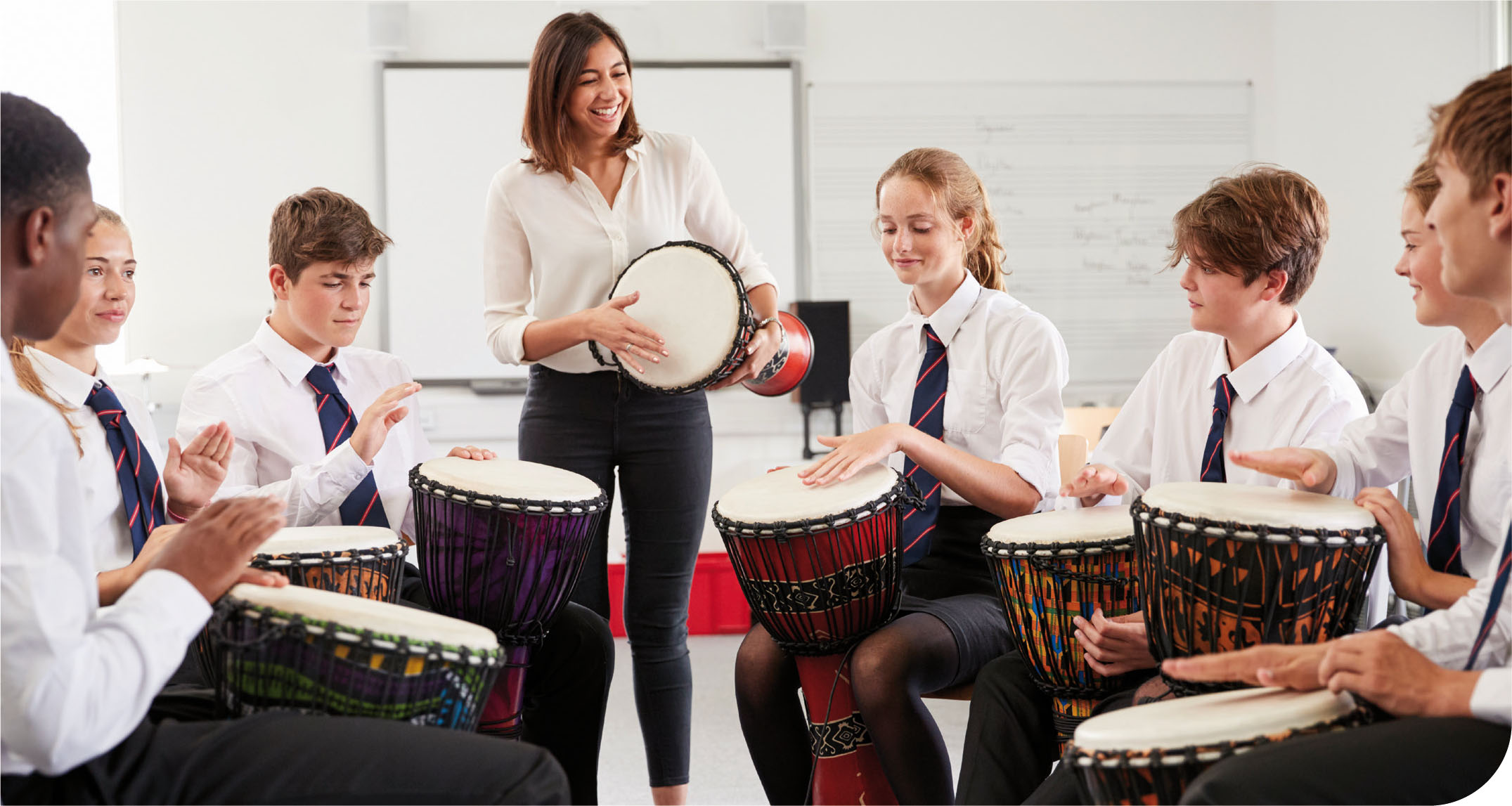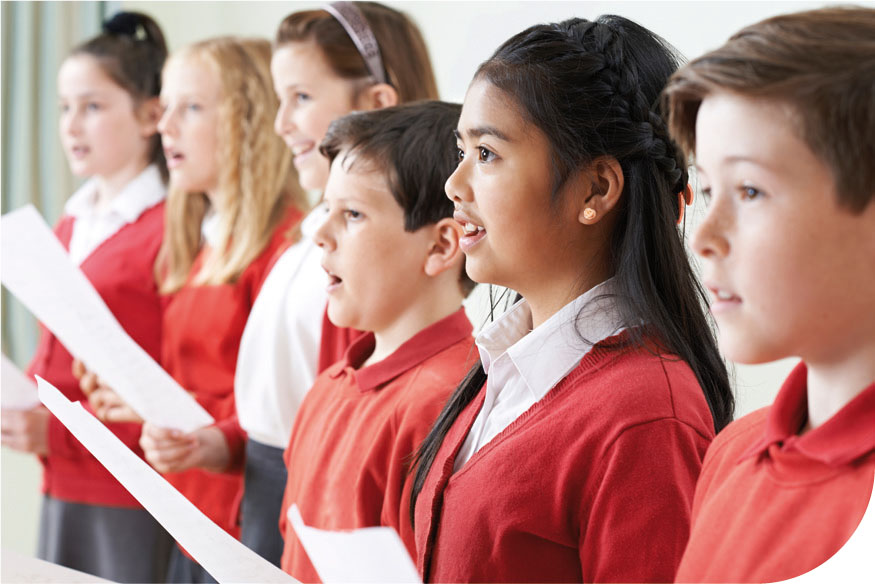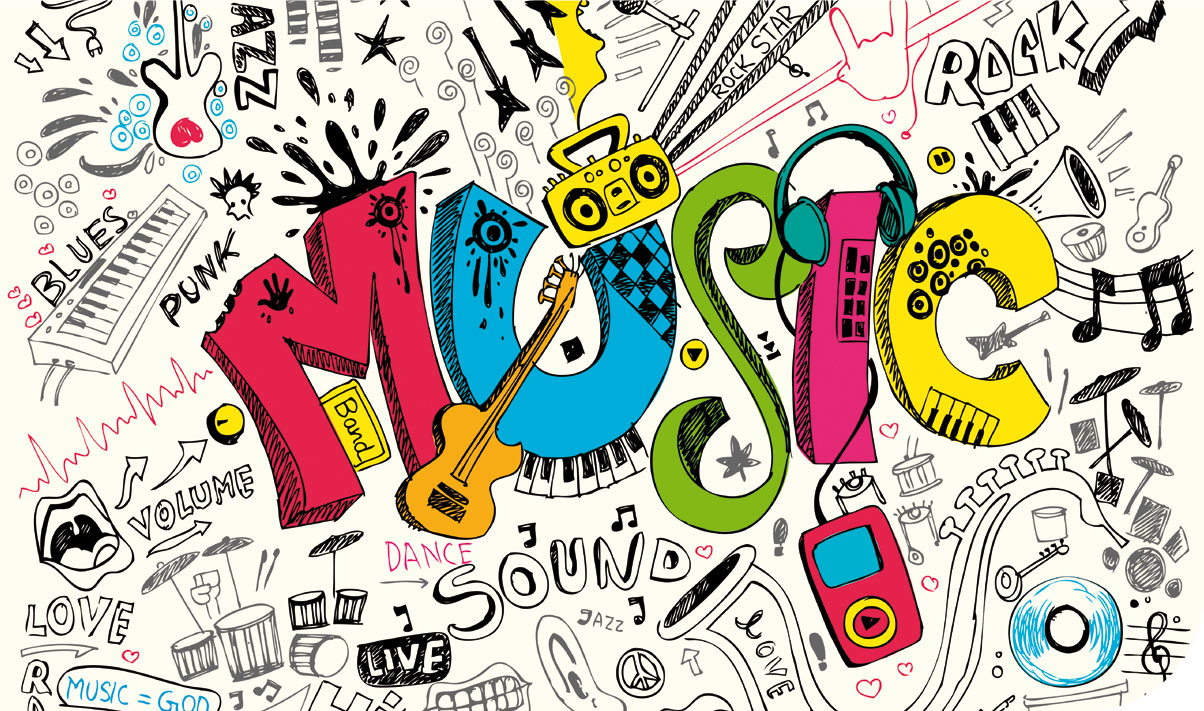
It has been quite a season for government announcements about music education. Like the proverbial busses, you wait for ages, then three come at once. One looks promising; the next one looks like it may have got lost; and as the third one drives past you someone throws the remainder of their McDonald's milkshake at you through the window.
In order, then. Arts Council England's Hub Support programme for 2021/2 includes an extra pot of money from the Department for Education (DfE), to be allocated by Music Mark in collaboration with Sound Connections. Music Mark has announced that its work on this will be divided into two main areas: the ‘Workforce Development Programme’, which is a continuation of its existing Arts Council-funded CPD programme, and an initiative called ‘Underpinning Hubs for the Future’, which includes ‘training and support for the organisations that lead MEHs [Hubs] as well as a Partnership Innovation Fund’. Music Mark chief executive Bridget Whyte commented: ‘We are excited to provide ongoing, targeted support to Music Education Hubs as they rebuild, refresh and re-imagine their music offer for young people in their area. Recognition by the Department for Education of the importance of investing in sustaining Hubs’ work both with schools and in communities is vital.’ Any forward planning is welcome from the DfE, but cynics will want to point out that the 2021/22 budget for hubs was late, less than the previous year's announcement, and a poor substitute for a refreshed National Plan, which has been put on ice due to the circumstances of the pandemic.
Then the Model Music Curriculum (MMC) was published, which was also late, and which split the crowd, to put it mildly. The third announcement, which was less an actual announcement and more of a reluctant admission, was that the Office for Students (OfS) had opened a consultation into plans drawn up by Gavin Williamson to halve government funding for further education courses in music, it not being a ‘strategic priority’, with a promise to ‘potentially seek further reductions in future years’. The consultation closed in early May, but not before a significant public outcry and a petition on campaignforthearts.org urging Williamson to rethink that gained more than 150,000 signatures.
The MMC: what is it?
The MMC, very much the baby of schools minister Nick Gibb, comprises a 36-page curriculum document for Key Stages 1 and 2 and a 25-page document covering Key Stage 3. It is a non-statutory, standalone document containing a concise summary of a possible scheme of work for these age groups. There is also a document of appendices, including a glossary, a chronology and a guide to ‘Foundation Listening’ for each key stage. It was put together under the auspices of the ABRSM, which nominated a 15-strong ‘expert panel’ headed by Baroness Fleet.
The government's hopes for the usefulness of the document are summed up by Music Teachers’ Association (MTA) president Simon Toyne, who sat on the expert panel. In an MTA press release, he said: ‘The Model Music Curriculum's expectation of a minimum of one hour's classroom music per week from Year 1 to Year 9 – with first access instrumental tuition, 1:1 lessons and musical ensembles in addition to that one hour – could make a substantial difference to the musical lives of our children and young people, and to the country at large.’ It is specified in the MMC that in terms of provision, ‘carousels are not a substitute that fits with the values of comprehensive education’. Being non-statutory means that the MMC isn't compulsory, and Ofsted has confirmed that ‘there will be no pre-requisite from inspectors that schools should adopt the Model Music Curriculum’. The Ofsted statement reiterates the National Curriculum expectations for music, and continues: ‘There remains every expectation that schools have in place a music curriculum that is ambitious, well-sequenced, implemented well, and which leads to good musical outcomes for all pupils.’

©DGL Images/ Adobe Stock
Do we like it?
The MMC has divided opinion in the music education community. There was a ringing endorsement from #CanDoMusic, the joint venture from the Incorporated Society of Musicians (ISM), the MTA (Music Teachers’ Association) and Music Mark. However, the ISM's own statement is more measured, putting the document into the context of a challenging period for music education policy and acknowledging the positives (including the ‘breadth of listening examples’ and the inclusion of singing as a ‘strong feature’) while meticulously listing the shortcomings: ‘The ISM is disappointed that the detailed content of the MMC fails to provide appropriate guidance for non-specialist teachers’; ‘The areas of learning defining the structure of the curriculum lack detailed focus and purpose’; and, right at the end, a steel-tipped hatpin through the tory heart: ‘Progression in musical learning as described by the MMC lacks consistent rigour’. (The reference to ‘rigour’ here is surely deliberate, as it is a word that had been used again and again by Gibb, Gove and others to justify music education reform.)
James Manwaring, director of music at Windsor Learning Partnership, is keen to focus on the positives, telling MT: ‘As a teacher across all key stages, I am confident that the MMC can have an impact. With strategic planning and a cautious approach, I believe that students will benefit. I have enjoyed seeing the ideas behind progression from Key Stages 1–3. I find the singing repertoire lists and the listening suggestions hugely helpful. It is nice to have something to present to teachers and use in situations where specialist teachers may not be available, and I am looking forward to working with the MMC and merging the modelled ideas with my own schemes and lessons’.
Many practitioners are sceptical about the practicality of the curriculum. Primary music teacher and author Karen Marshall tells MT: I'm really pleased we have the MMC, it's a starting point with some excellent content. However, music practitioners may have material that they have found to be far more successful. As a whole, some of the selection appears to have been made due to theoretical rather than practical considerations. This curriculum is written for a music specialist to deliver. More than this, on the part of the students, there are core skills such as maintaining a pulse that have to be learned before any of this can be attempted. Pulse is mentioned, but not stressed as a priority, and core stills must be given absolute priority in the early stages.’
 © HighwayStarz / Adobe Stock
© HighwayStarz / Adobe Stock
Jonathan Savage, managing director at UCan Play Ltd, reader, School of Teacher Education and Professional Development, Manchester Metropolitan University and an experienced teacher at secondary level, sees the problems with the document as being insurmountable, telling MT: ‘The Model Music Curriculum as published is a strange collection of ideas with little, if any, over-arching structural narrative or sustained attempt to justify its approach. It is a first-class example of a top-down, clumsy attempt at curriculum reform that deserves to fail and should be ignored. My earnest hope is that it will quickly fade into insignificance. It is another example of a long line of poor music education policy decisions by this government that have decimated the provision of a high-quality music education for children in England.
‘One of the greatest thinkers about curriculum development in the twentieth century, Lawrence Stenhouse, had a mantra that is apposite here: “There is no curriculum development without teacher development”. This gives you a major clue as to where I think the government's energies should be focused. I can think of several complete pieces of curriculum development for music education that have been written by teachers, for teachers, within the work of music education hubs across the country. The government should have looked at highlighting these before commissioning this turgid alternative. It has no coherence, little if any developmental consistency, and no underpinning rationale.’
Despite the intended wide reach of the MMC in terms of genre and period, many commentators have drawn attention to a long list of misjudgements in classification and repertoire choice, not to mention basic errors. Most of these issues have been changed on the downloadable document, but it's all there on the Twitter feed of Nate Holder (@N8Holder), international chair of music education for the Royal Northern College of Music and an authority on the principles involved in the decolonisation of music curricula.
 © Vectomart/ Adobe Stock
© Vectomart/ Adobe Stock
Commentary
My own view is that what we have in the MMC is essentially a specification document for a course of study. Just as no-one would attempt to teach any of the GCSE or A Level curricula from the board's specification document alone, the usefulness of the MMC stands and falls entirely on it being supported by extensive dedicated resources and delivered by trained teachers. The document itself states: ‘Effective delivery is likely to come from a combination of schools, teachers, practitioners, professional ensembles, venues, and other Music Education Hub partners working collaboratively.’ However, we have every reason to believe that delivery of this curriculum will be patchy; a postcode lottery entirely dependent on the willingness and ability of your local hub to get involved, and the finances of each individual school.
Added to the issue of the paucity of pedagogic content and lack of guidance as to where to find such content, there are practical problems with trying to follow this curriculum: the reliance on Sing Up resources, access to which costs £150 a year; the dangerous lack of guidance on how to warm up and treat young voices safely considering the reliance on singing, or even any mention of the fact that this can be an issue; and the total black hole in terms of guidance on how to find or use ‘music technology’.
There are some head-bangingly irritating mistakes that are still present in the appendices. I didn't have the strength to read past the first page of the glossary, which restricts the brass family to ten instruments and defines compound time as being ‘Music that is written in a metre of 2 but where each beat is subdivided into 3 quavers’, completely ignoring compound triple metres and the fact that your subdivisions might not be quavers. It is irritating because the correct definition would actually have been shorter, simpler and more musical. The tables in the Musical Traditions section of the Chronology are mislabelled, which is fine, but shows that the document didn't go past a musical editor. In the Foundation Listening appendix, using ‘African Choral’ as a category is excruciatingly dated.
But enough pedantry. This document will hopefully be useful to many, and to hear Nick Gibb talk further about the importance of music is a positive step. But teachers deserve to have the truthful context of this document acknowledged. Putting out a document that will bewilder non-specialists, after a decade of harmful policy that ensured that primary music is largely delivered by teachers with little specific training, and trumpeting the document's usefulness when your policies have ensured that most schools do not have the expertise or resources to deliver it, feels like spectacular and wilful gaslighting on the part of the DfE.
www.gov.uk/government/publications/teaching-music-in-schools








